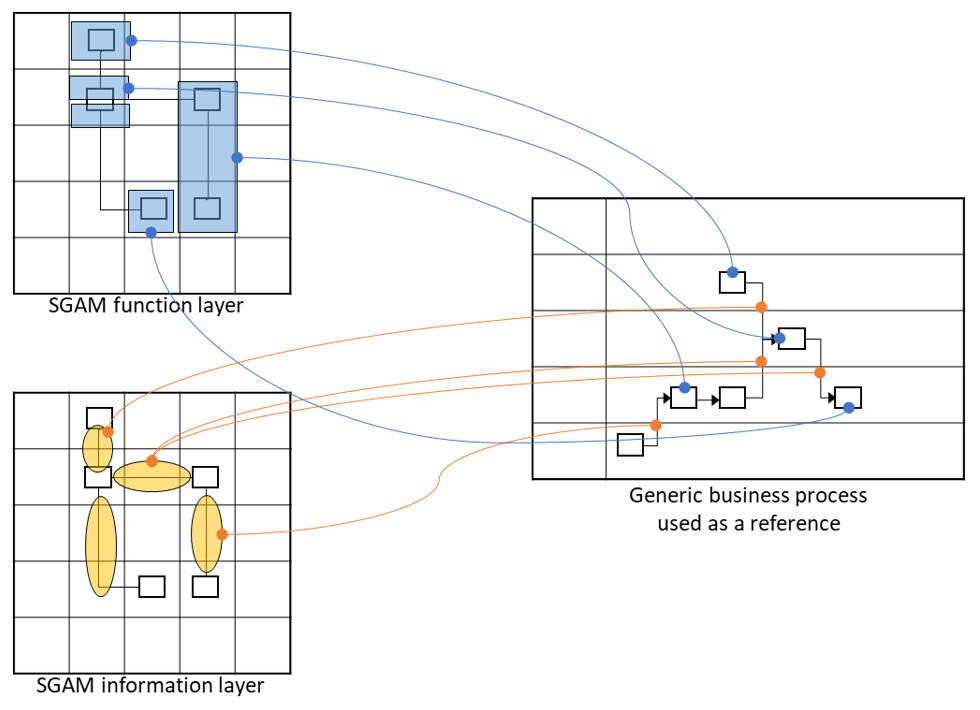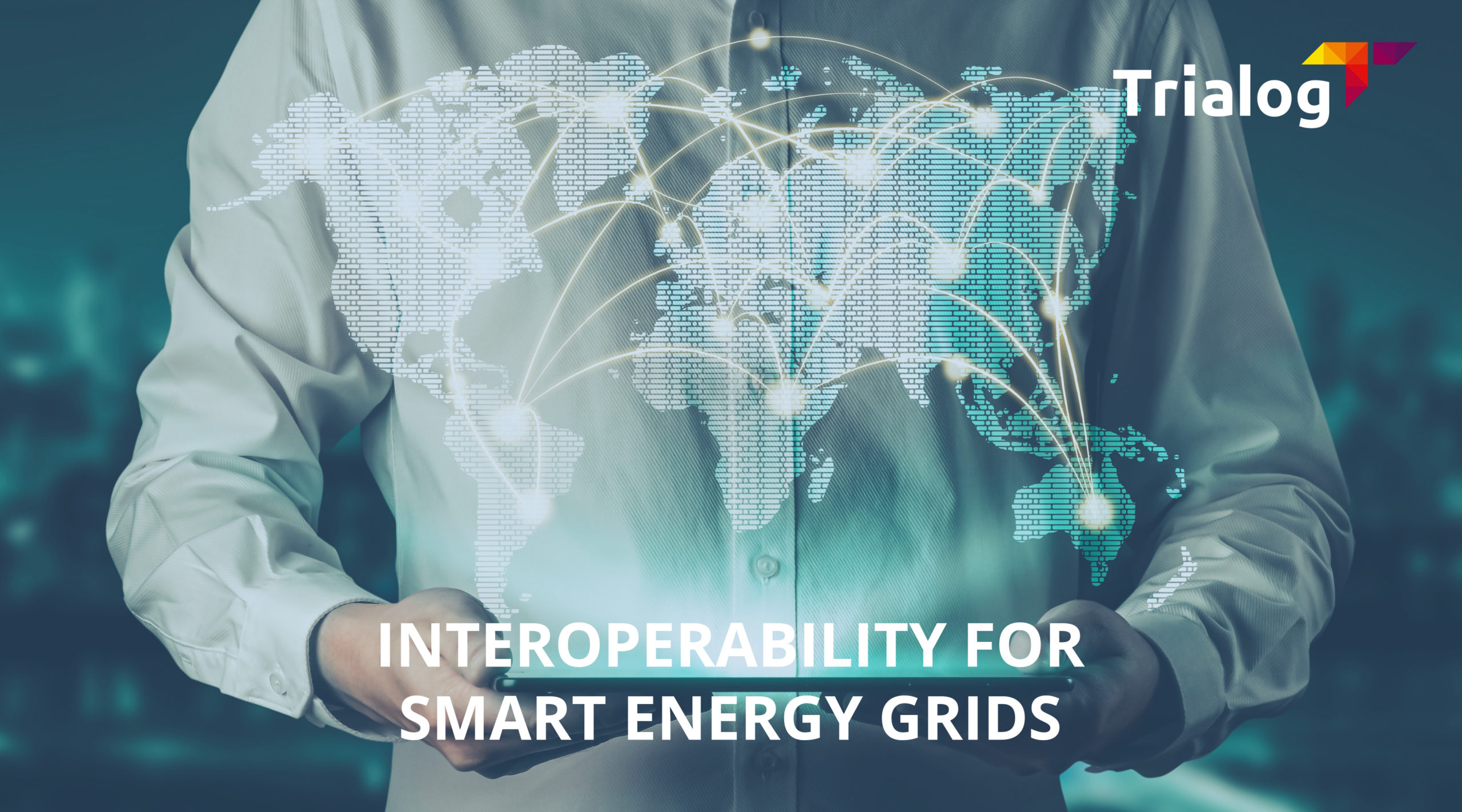BRIDGE, a EU initiative gathering all Horizon 2020 smart grid innovation projects
BRIDGE is a EU initiative launched by the European Commission in 2016 to foster collaboration and consolidate results between the research & innovation projects in the area of smart grids, energy storage, islands and digitalisation of the energy system funded under the Horizon 2020 program.
Since its creation, it has gathered 80+ projects involving 700+ organisations from 38 countries for a total EU funding of 750+ M€.
BRIDGE is structured around 4 working groups: Business Models, Regulation, Customer & citizen engagement and Data Management. Trialog is involved in the Data Management WG since 2017.
From March 2nd to 4th 2021, the General Assembly of BRIDGE gathered 300+ EU experts on smart grids to share last year’s achievements and shape the activities for 2021.
Data Management WG
Scope and contribution from Trialog
The Data Management WG focuses on the technical and non-technical aspects related to the exchange between stakeholders, including the handling of such data by each party. It has identified three main areas of collaboration:
- Communication Infrastructure: covering the technical and non-technical aspects of the communication infrastructure required to exchange data.
- Cybersecurity and Data Privacy: including data integrity, customer privacy and data protection.
- Data Handling: including the framework for data exchange and related roles and responsibilities, together with the technical issues supporting the exchange of data in a secure and interoperable manner.
This WG is chaired since 2019 by Olivier Genest, Director at Trialog. Trialog is an active contributor to the Data Management since 2017 and has led several activities, covering Data handling (2018), Cybersecurity and Resilience (2019) and Interoperability of flexibility assets (2020).
Topics studied in 2020
During the BRIDGE General Assembly of February 2020, three topics have been launched:
- Use-case repository: the purpose of this topic was to set-up a collaborative repository gathering the use-cases from all the BRIDGE projects, based on the IEC 62559-2 standard template. A first version of this repository has been published and is hosted on github, gathering 22 use-cases from 6 BRIDGE projects.
- EU data exchange reference architecture: this topic aimed to define a common and cross-sector reference architecture to enable interoperable data exchanges at EU level. Its results have been published in a report and are summarized below.
- Interoperability of flexibility assets: the main objective of this topic was to gather knowledge and experience and generate outcomes to enable the interoperability all along the flexibility lifecycle, i.e. from bidding to activation and settlement. Its results have been published in a report and are summarized below.
Main results in 2020 related to interoperability
EU data exchange reference architecture
Several BRIDGE projects have contributed here, including GIFT and InterConnect in which Trialog is partner. The Harmonized Electricity Market Role Model, that defines what are the market participants and how they interact, has been updated by the Data Management WG in order to include data-related roles.
The WG has also defined the EU data exchange reference architecture described in below:

Figure 1: BRIDGE EU data exchange reference architecture (source)
This reference architecture, mapped to the Smart Grid Architecture Model (SGAM), defines in particular the building blocks required for cross-sector exchanges. Its goal is to be used by existing and future projects to enable cross-domain and cross-border interoperability.
Interoperability of flexibility assets
In addition, the Data Management WG has defined a methodology and a reference framework to allow cross-projects analysis of flexibility use-cases and system implementation. This reference framework currently defines three Generic Business Processes (GBPs) as common denominators between the use-cases from different projects: (1) Flexibility for System Operators through open market; (2) Flexibility for System Operators via prior bilateral agreement; (3) Flexibility for Balance Responsible Parties through open market. The mapping is performed between these Generic Business Processes and the Smart Grid Architecture Models from the projects, as depicted below:

Figure 2: BRIDGE methodology to study the interoperability of flexibility assets (source)
When applied to the BRIDGE projects, this methodology allows to build (1) a catalogue of relevant standards per interface; (2) a list of identified gaps; (3) a list of proposed extensions or modifications of existing standards; and (4) insights about how business roles and functions are implemented by projects. The results from this activity are expected to feed both the BRIDGE projects and a larger community, in particular through liaison with relevant standardisation bodies.
Next steps and perspectives
BRIDGE Data Management WG activities for 2021
In 2021, the Data Management will continue to work on the three topics launched in 2020 with extended objectives:
- Set-up a BRIDGE repository, going beyond use-cases to host also role models, details about system implementation, proposed standards extensions, etc.;
- Implement a Minimum Viable Product (MVP) of the EU data exchange reference architecture within several volunteer projects to demonstrate it;
- Apply the “Interoperability of Flexibility Assets” methodology to more and more projects to generate more valuable outcomes to enable the interoperability of flexibility exchanges;
- Set-up a process to push BRIDGE contributions to standardization committees, via partners involved in standardisation and a user group with official liaison.
Trialog pursue its R&I activities to enable interoperability and cross-sector data exchange in Europe
Based on its strong knowledge and experience of the interoperability and trustworthiness of cyber-physical systems, in particular applied to smart energy systems, Trialog has engaged several new projects and responsibilities in the last months to strengthen its central position:
- Kick-off of two Horizon 2020 projects:
- Appointment as co-Convenor of JWG3 “Smart Energy Roadmap”, between IEC SyC Smart Energy and ISO/IEC JTC1/SC41;
- Appointment as co-Chair of SmartBuilt4EU Task Force 3 on data interoperability to enable smart buildings to provide flexibility to power grids;
- Edition of ISO/IEC 21823-3 standard on semantic interoperability for IoT systems.
Do not hesitate to contact us to know more about our activities and collaborate on these topics. In particular, we have a strong expertise on smart energy architectures, technologies and standards and an extensive knowledge of the smart energy ecosystem in France and Europe, that can be energised to support your projects.


